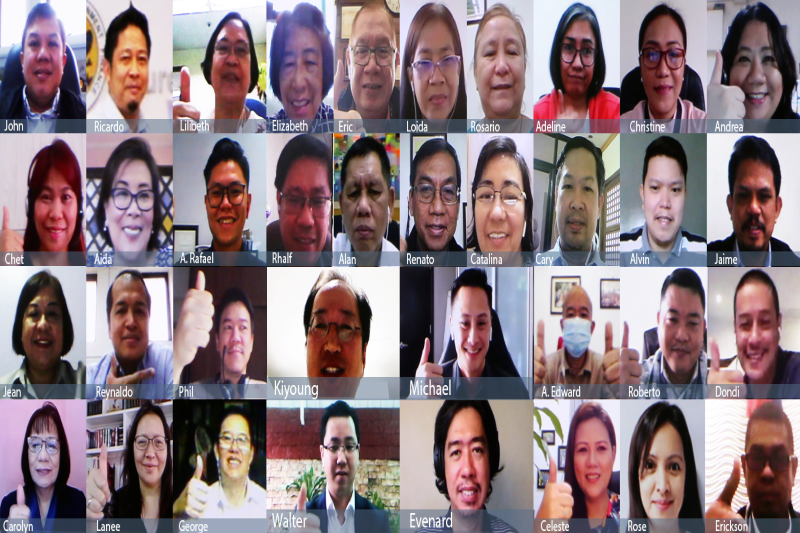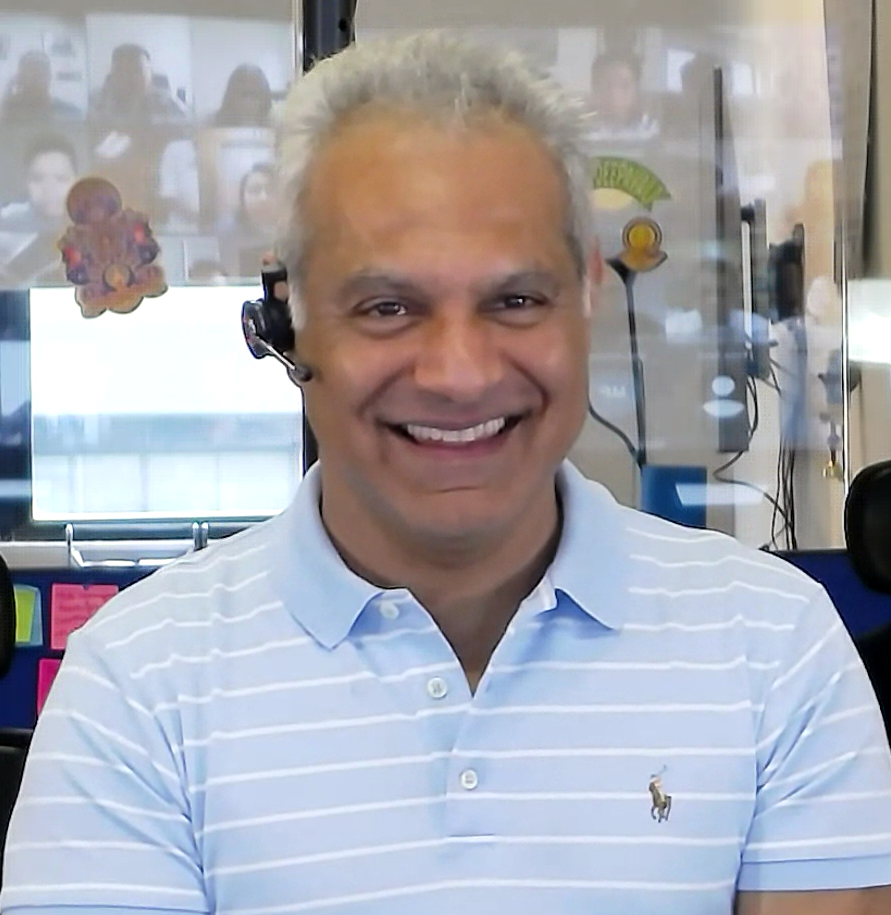
The pandemic has severely impacted governments around the world, fundamentally changing the mode of service delivery and citizen’s expectations over a very short period of time. Despite the limitations created by lockdowns, restricted movement orders and remote working, citizens expect their governments to deliver and interact with them smoothly.
The fact that governments had to quickly transform their operations and delivery mechanisms brought to fore several challenges and revealed systemic lacunae. The OpenGovLive! Virtual Breakfast Insight on 11 November 2020 in collaboration with VMware attempted to understand these pain points and propose technology as a possible solution to ease the transformation.
The audience comprised of senior executives from various government agencies in the Philippines with an overwhelming response from in terms of attendance and engagement.
The pandemic has made governments rethink their current mode of working
 The session was opened by Mohit Sagar, Group Managing Director and Editor-in-Chief, OpenGov Asia. Mohit began by sharing that 2020 has made everyone realise the importance of being agile and to pro-actively pre-empt the challenges even in the most difficult of times. This is especially relevant for public sector organisations as they have a mandate to maintain business continuity rather than reacting to changes.
The session was opened by Mohit Sagar, Group Managing Director and Editor-in-Chief, OpenGov Asia. Mohit began by sharing that 2020 has made everyone realise the importance of being agile and to pro-actively pre-empt the challenges even in the most difficult of times. This is especially relevant for public sector organisations as they have a mandate to maintain business continuity rather than reacting to changes.
In the recent crisis, governments were faced with two major challenges. First, to provide citizens with accurate, useful and up-to-date information on the pandemic. Second, to meet the new needs for digital services and a greater demand for existing services.
Citizens’ expectations and demands of government agencies to provide unparalleled and smarter services increased during the pandemic and continue to rise as governments grapple with the situation.
Mohit advised the audience that to fully satisfy and engage citizens in a digital age, e-government services must move beyond digitising processes and services and focus on citizen experience.
He also cautioned them of the plethora of challenges that they might face in the process. Mohit urged them to not try and do everything on their own but to partner with those who champion the field and could add more value to the goal they are trying to achieve.
Demands of a digital citizen and how governments can meet them

After Mohit laid the groundwork for the discussions ahead, Michael Hoo, Director of Solution Architecture, SEAK, VMWare shared his insights.
Michael began by talking about the 3 major requirements of a digitally empowered citizen today:
- Convenience: citizens want convenience in the way they interact with their government.
- Security: data security is of utmost importance to citizens
- Mobility: interaction anywhere, anytime is what citizens expect of their government
After sharing about citizen expectations, he then explained how governments can meet these expectations by developing digital solutions.
Michael highlighted the first and most vital step in this process is to try and understand the pains, challenges and goal of developing a solution from a citizen point of view. Having understood the pain points and what needs to be achieved, the next step is to come up with a suitable platform/application keeping in mind the supporting ecosystem.
The final step in this process is to ensure the utility and security of the app for citizens and civil servants. He emphasised that merely devising a solution for citizens is not enough, data security is a priority for the citizens.
Michael shared a few examples to illustrate how VMware is supporting digital initiatives of governments around the world. These include transforming employees’ provident fund application and revamping an income tax core application program in South East Asia and enabling 35,000 public servants to work from home safely in Australia.
He concluded his presentation by highlighting the ways VMware can help and support e-government initiatives. VMware helps build and run applications in e-government services, manage their operating environments, ensuring their security and increasing their effectiveness.
Overview of South Korea’s journey towards becoming an e-government

After Michael’s informative presentation, Kiyoung Lee, Executive Principal Researcher, National Information Society Agency, Government of South Korea shared their journey on the path to becoming an e-government.
Tracing their digitalisation beginnings to the 1980s, Kiyoung shared their step-wise transformation journey from being a paper-based organisation to becoming a mobile organisation powered by big data, cloud and IoT.
He explained the phased approach followed by his organisation during this transformation. Phase one was predominantly about laying the foundation, consolidating internal administrative procedures and establishing a common basis. Phase two comprised of the advancement of internal procedures and expanding integrated services.
Talking about their present situation, Kiyoung proudly shared that after years of hard work and planning they were able to establish themselves as an effective, service-oriented and transparent organisation. They have successfully integrated and automated many procedures that have significantly enhanced citizen’s demands and satisfaction.
Requesting government records, applying for licenses, permits etc. no longer requires the citizen to make multiple visits to various government offices. It has all been enabled online. Understanding the importance of feedback, the Korean government has set up online feedback portals where citizens can share their problems and challenges so that action can be taken to rectify them.
He concluded his presentation by enumerating their future goals to further enhance the service delivery experience for the citizens. They want to take the next step by ensuring government support to citizens throughout their lifetime depending on which stage of life they are at. They are also bringing in chatbots to ensure they are better available to the citizens and facilitate better communication. They are also planning on digitising loan applications and tax procedures so that these services are not disrupted due to crises and emergencies.
Kiyoung encouraged the delegates to be open to digital transformation and technology as it helps maximise the power of data, enabling governments to serve citizens better.
After the enriching presentations from the speakers, Mohit engaged the delegates in the live polling session. There were interesting reflections, insights and opinions that came out of these discussions.
On the first question about the evolution of e-government services in the next 2-3 years, a majority of the delegates voted that there will be a significant increase in the development of new apps and software to improve e-government services (67%).
A senior executive from Department of Health shared that because of the pandemic there has been a major drive towards contactless technologies and it is imperative to develop new apps and platforms that will enable contactless transactions. According to him, the development of new apps is the way to go.
On the next question about the most important enablers for a breakthrough transformation of e-government services, a major chunk of the audience voted for innovation and ideation (41%).
A delegate from the Department of Budget and Management shared that she believes everything needs a vision and ideation for it to become a reality. But at the same time, they have to be mindful of the limitations of budgets which are a major consideration.
On the final question about how applications are run and built in organisations, most delegates shared that they are in the middle of rolling out modern applications for their existing government services (41%).
A delegate reflected that before the pandemic, they had very limited online services. So they are now using the pandemic as an opportunity to expand their online services. They have successfully transformed services like filing for loans, retirement and unemployment benefits to their online portal. He also shared that they plan to launch a few more services on the online portal.
 After the interactive polling session, the session came to a conclusion end with closing remarks by Walter Co So, Country Manager, VMwarePhilippines.
After the interactive polling session, the session came to a conclusion end with closing remarks by Walter Co So, Country Manager, VMwarePhilippines.
Walter began by thanking all the delegates and speakers for their insightful contribution to the session. He shared with the audience that enabling digital services in governments is a life-saver, especially in time of crisEs when citizens are unable to reach out to governments physically.
He also shared how the citizens of the Philippines are adapting to the new normal. Over 40% of Filipinos engaged in online transactions for the first time in their lives.
Walter lauded the IT professionals in governments and at large for becoming drivers of change rather than being mere supporters of change. He also encouraged the delegates to engage in dialogue with his team to know and learn more about how VMware can support them on their journey to becoming an e-government.
















